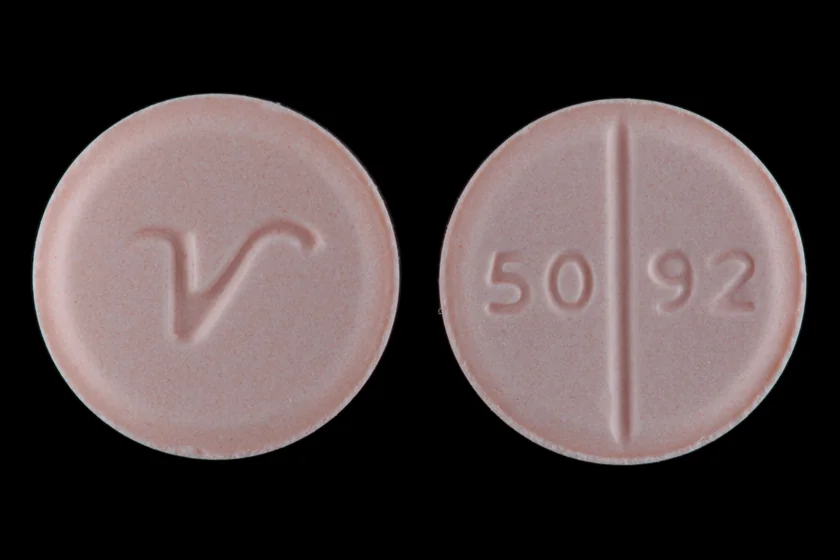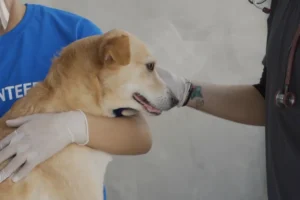Ever found yourself pondering if your own prednisone prescription could help your pet during their discomfort? Or perhaps you’ve considered using your pet’s prednisone? These are common questions for those with access to prednisone, both for personal and pet use.
This guide will help your with the specifics of prednisone for dogs and its difference from human use, potentially saving you from a preventable health risk for your beloved pet and for you, as well.

What is Prednisone?
Prednisone is a synthetic corticosteroid drug that mimics the effects of cortisol, a hormone naturally produced in the body.
Doctors and veterinarians prescribe it to reduce inflammation and suppress the immune system. Prednisone is used to treat a variety of health conditions, including allergies, autoimmune diseases, and certain types of cancer.
However, like all medications, it needs to be used under professional supervision due to potential side effects and interactions.
How Does Prednisone Work in Dogs?
In dogs, prednisone works by entering the cells and binding to specific receptors, altering the cell’s functions. This, in turn, inhibits inflammatory pathways and suppresses immune response.
Essentially, prednisone decreases the production of inflammatory chemicals and increases the production of anti-inflammatory substances.
It’s important to remember that while prednisone can help alleviate symptoms of various ailments in dogs, it doesn’t cure the underlying issue. Therefore, it’s often used in conjunction with other treatments.
As a pet owner, you should never self-medicate your dog but always follow the guidance of a veterinarian to ensure the safety and wellbeing of your four-legged companion.
While the chemical composition of prednisone is the same for humans and dogs, it’s critical to understand that the dosages and guidelines for use differ significantly.
Dogs metabolize medications differently than humans do, and what works for us may not work in the same way for our four-legged friends. The dosages are typically calculated based on weight, and an incorrect dosage can lead to serious health issues.
Therefore, sharing your prednisone with your dog, even if it seems like a small dose, can potentially lead to an overdose for your pet. Always consult with your vet before administering any human medication to your dog.

Can People Take Prednisone Intended for Dogs?
As much as the reverse isn’t recommended, people should also not take prednisone that’s intended for dogs.
Human bodies are much larger and have different metabolism rates compared to dogs. A dose that’s intended for a dog, even a large breed, will likely not be adequate for a human, which could lead to ineffectiveness at best and dangerous under-dosing at worst.
Moreover, pharmaceutical regulations for veterinary medications aren’t as strict as those for human medicines. The prednisone that you get from a vet may not meet the same quality control standards as the ones from human pharmacies, which may pose additional risks.
Remember, self-medication can be dangerous and can lead to serious complications. Always seek the advice of a medical professional before taking any medication, especially one not prescribed to you.
When Should You Consult Your Vet?
Every pet owner’s primary concern should be the health and well-being of their furry friend. You should consult your vet at the first sign of any abnormal behavior or symptoms in your dog, especially if your pet has been on a medication like prednisone.
Read more: Can You Take Your Dog to the Vet Without Papers?
Look out for signs of distress such as excessive thirst, increased urination, abnormal behavior, loss of appetite, or any severe allergic reaction. Remember, it’s always better to err on the side of caution when it comes to the health of your loved ones.
Consulting with a vet is even more critical if you’ve mistakenly given human medication to your pet. Your vet is your partner in ensuring the best health for your dog, and they’ll always be happy to address your concerns.
FAQs
Are there any side effects of prednisone for dogs?
Prednisone for dogs may lead to side effects like increased thirst and urination, excessive hunger, panting, a dull or dry coat, behavioral changes, or even serious issues like stomach ulcers if used in high doses or for an extended period.
Can prednisone be used for other pets?
Prednisone is primarily used in dogs and cats under veterinary guidance. However, it’s crucial to remember that the dosage and duration will vary based on the species, size, and health condition of the pet.
How long does it take for prednisone to work in dogs?
Prednisone typically starts working within one to two hours of administration in dogs. However, the overall effects may not be noticeable until a few days into the treatment, depending on the condition being treated.
What if I accidentally give my dog a human dose of prednisone?
If you accidentally give your dog a human dose of prednisone, contact your vet immediately. The higher dosage could lead to a range of side effects, from mild discomfort to severe health risks. Your vet will guide you on the next steps based on your dog’s symptoms and condition.
Alex, a passionate animal lover, has experience in training and understanding animal behavior. As a proud pet parent to two dogs and three cats, he founded AnimalReport.net to share insights from animal experts and expand his knowledge of the animal kingdom.




